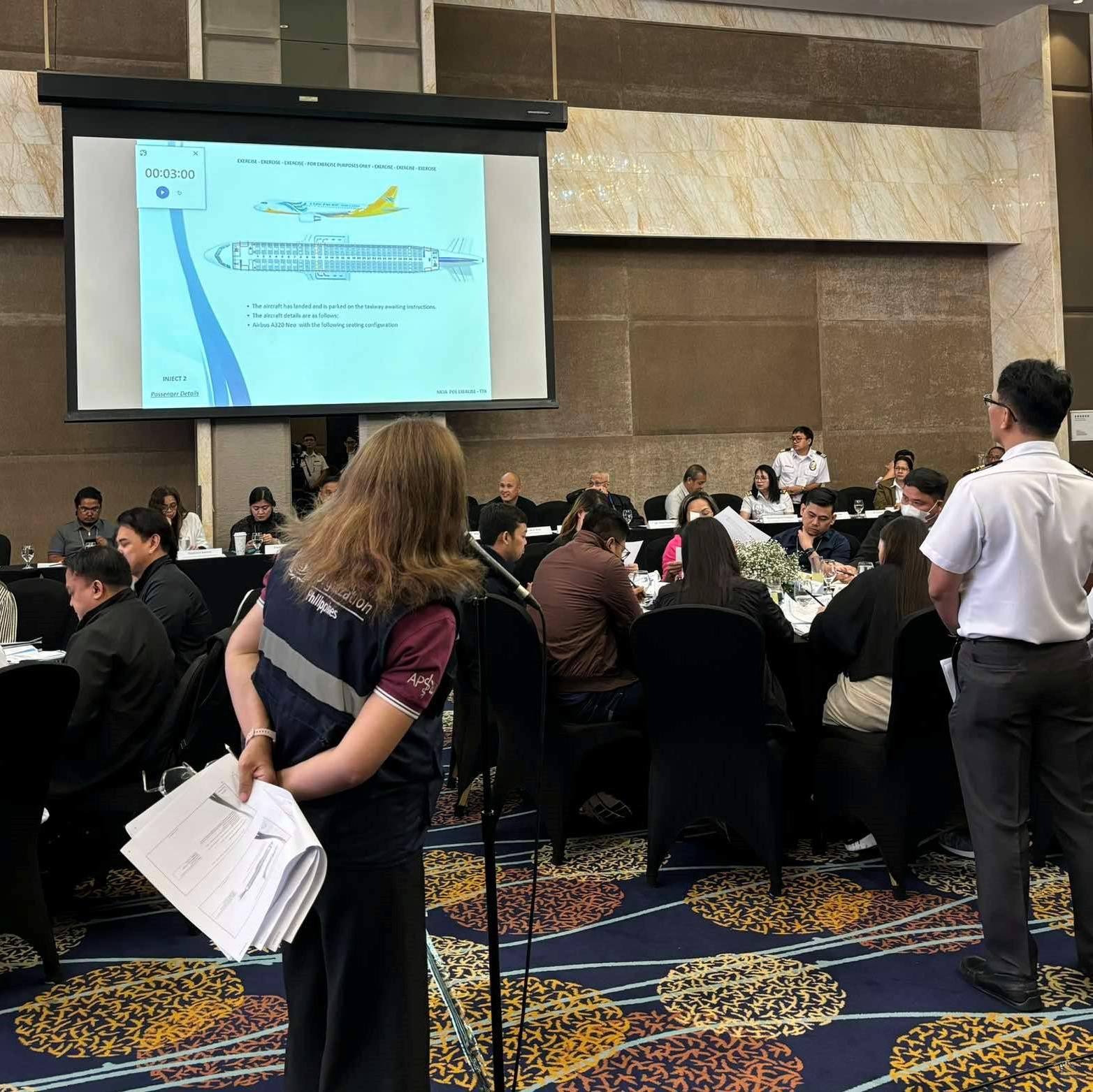In an effort to enhance public health preparedness and response capabilities to future disease outbreaks at points of entry, the Bureau of Quarantine (BOQ) Cebu of the Department of Health (DOH), in collaboration with the World Health Organization (WHO) Philippines, United States Agency for International Development (USAID), and the Mactan Cebu International Airport Authority (MCIAA) conducted a simulation exercise on 29 to 30 August 2024. Relevant stakeholders operating at the airport, including the airlines participated in the activity.
The simulation exercise aimed to evaluate the BOQ Cebu’s ability to manage and mitigate as effectively as possible the impact of potential public health threats to the country or global health security. During the exercise, participants tested the effectiveness of their Public Health Emergency Contingency Plan (PHECP) at the airport, which includes specific actions to take when faced with a public health threat or emergency at the airport. The exercise examined and analyzed the standard operating procedures for single inbound aircraft with suspect cases of illnesses that spread on board.

The BOQ emphasizes the importance of strengthening the preparedness and response strategies for public health emergencies that may impact the Mactan Cebu International Airport and the wider community. The activity shall be able to foster stronger ties among various stakeholders, including local health officials, airport management, emergency responders, and airline operators. “Together, we can identify gaps and develop essential solutions by aligning our efforts towards a unified response, which in turn, shall pave a way for a more effective public health emergency response system in Cebu. Through active collaboration and commitment to preparedness, I am confident that we will be better equipped to protect the safety and well-being of all travelers and the community,” said Dr Ferdinand S.Salcedo, Director of the Bureau of Quarantine.
After the exercise, participants from various government and private sector agencies shared their experiences, lessons learnt, and recommendations with each other. They exchanged observations and suggestions to improve the Public Health Emergency Contingency Plan, including the communication and coordination system.
DOH Secretary Teodoro Herbosa also attended the event where he gave a message of support. He emphasized the importance of putting up resilient systems - which includes preparedness, response, and recovering from public health emergencies.
“Through our Global Health Security investments, USAID will continue to collaborate closely with the Philippines to strengthen the country's capacities to prevent, detect, and respond to emerging and re-emerging infectious disease threats,” said USAID Health Director Andrea Halverson.
Managing public health threats at ports of entry requires participation and commitment from various sectors and the government. Together with partners, WHO Philippines will work with the Bureau of Quarantine in strengthening adherence to international public health border regulations so that airports in the Philippines can safely welcome everyone wherever they come from.
“No country is safe until all countries are safe. Let’s act together to strengthen national health security because everyone deserves to be protected from any form of disease outbreak,” said Dr Rui Paulo de Jesus, WHO Representative to the Philippines.
